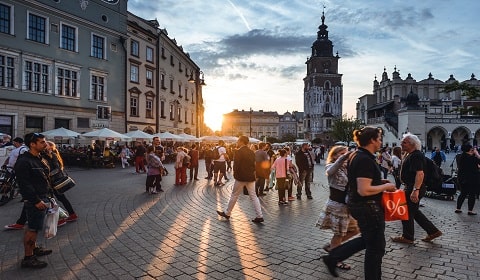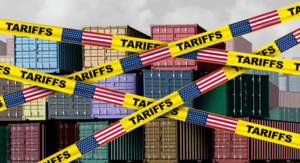
Impact of Inflation on tourism
The impact of inflation on tourism remains a significant concern, persisting even as the Covid pandemic recedes. Statista’s report links the war in Ukraine, supply chain disruptions, and soaring feedstock prices to a stalled recovery in tourism. Regiondo’s survey of 140+ travel industry professionals’ underscores inflation as the primary challenge for 2023, revealing its disruptive potential.
This economic pressure threatens tour operators and activity providers, necessitating a deep understanding of market dynamics to sustain profitability amid waning consumer confidence. Recognizing inflation’s implications on the industry empowers informed decision-making. In the following content, we’ll delve into this issue, fortify businesses against the current economic uncertainty, enabling resilience and growth despite these challenging times.
Table of Contents
The Impact of Inflation on Tourism
The impact of inflation on tourism is substantial, fundamentally reshaping consumer behaviors and travel trends. Inflation, characterized by a general increase in prices, diminishes consumers’ purchasing power over time, compelling them to reconsider their spending choices. As the costs of goods and services surge, tourists tend to tighten their budgets, leading to a decline in discretionary spending on travel.
Survey findings indicate a significant shift in travel decisions, with a surge in short-term bookings and a preference for cheaper destinations among American and British travelers. The prevailing economic climate, influenced by inflation, instills concerns among industry professionals, foreseeing adverse effects on their businesses as tourists adapt their holiday plans in response to reduced purchasing power.
1. Cost Escalation and Tourist Behavior
The impact of inflation on tourism profoundly influences the cost of travel components, such as accommodation, transportation, and dining. According to research from the World Travel & Tourism Council (WTTC), a mere 1% increase in inflation can correspondingly decrease international tourist arrivals by 1-3%.
Rising costs prompt tourists to alter their behavior, possibly opting for more affordable destinations or reducing discretionary spending during their travels. This correlation underscores how inflation influences travel choices, compelling individuals to seek more affordable options or economize during their trips, highlighting its consequential role in shaping global tourism trends.
2. Shifts in Destination Preferences
Inflation-induced price hikes in popular tourist spots can lead to shifts in destination preferences. The impact of inflation on tourism, as reported by the European Travel Commission, suggests that a 1% increase in inflation in European destinations might result in a decrease in international arrivals by 0.5-2%.
Travelers may seek destinations where their currency holds more value or explore less expensive alternatives due to inflated prices in certain regions. Rising prices caused by inflation can alter tourists’ choices, impacting popular destinations. Economic fluctuations nudging up costs often prompt tourists to reconsider their vacation spots, favoring destinations offering better value for their currency or exploring less expensive yet equally appealing options.
3. Impact on Tourist Expenditure
The impact of inflation on tourism is evident in the direct correlation between tourists’ purchasing power and inflation rates. According to the United Nations World Tourism Organization (UNWTO), a 1% inflation increase could potentially reduce global tourist spending by 0.5-2%. As prices soar, tourists may recalibrate their spending habits, trimming non-essential expenses like leisure activities or souvenirs.
This shift reflects their adaptation to inflation’s impact on their buying capacity, prioritizing essential expenditures during their trips. The influence of inflation on tourism becomes apparent as visitors adjust their budgets to navigate through destinations where rising prices alter the landscape of spending while exploring different parts of the world.
4. Challenges for the Hospitality Industry
Global inflation’s impact on tourism directly affects the hospitality sector, particularly hotels. Research from Statista highlights that a 1% inflation increase may correlate with a 0.5-1.5% decrease in hotel occupancy rates. As operational costs, such as labor, utilities, and supplies, surge, profit margins for hotels and tour operators dwindle. In response, these entities must adjust pricing strategies, potentially limiting travel accessibility for budget-conscious tourists.
The challenge lies in sustaining profitability amid rising expenses, prompting recalibration of pricing models within the hospitality sector. This adjustment not only impacts the industry’s financial landscape but also influences the choices available to budget-minded travelers seeking affordable accommodation and tour options.
5. Economic Stability and Government Policies
Inflation rates often trigger government intervention to stabilize economies. The International Monetary Fund (IMF) emphasizes how prolonged inflation can disrupt economic stability and alter a country’s allure as a tourist destination. The impact of inflation on tourism is evident in instances seen in countries like Argentina and Turkey, where high inflation or currency devaluation affects tourism by impacting prices and visitors’ spending power.
Such fluctuations reshuffle the landscape for tourists, underlining the significant role of economic policies in combating inflation to sustain a country’s appeal as a destination and safeguard the interests of travelers in terms of affordability and spending capacity.
Bottom Line
Inflation profoundly affects tourism dynamics, reshaping travel patterns, destination choices, and tourist spending behaviors. The impact of inflation on tourism is pivotal, presenting challenges to the hospitality industry.
Policymakers and industry stakeholders must factor in inflationary pressures when devising strategies to fortify the tourism sector amidst economic fluctuations. Navigating these challenges ensures the sector’s resilience, adapting to sustainably meet evolving traveler needs while managing the impacts of inflation on accessibility and affordability for tourists worldwide.





